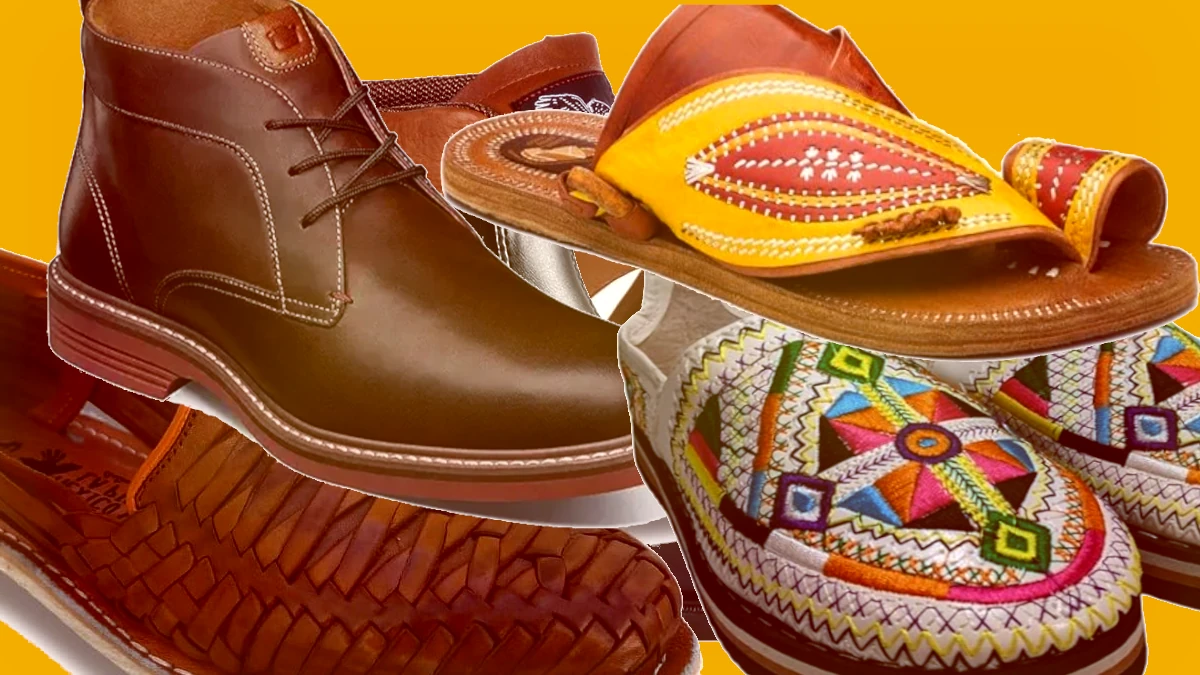Across the globe, different cultures have developed unique styles of Wüstenschuhe that are not only practical but also rich in history and tradition.
Different types of desert shoes and sandals showcase the diverse ways cultures adapt to their environments while expressing their unique identities.
Below are seven types of traditional desert footwear from around the globe, each with its unique style.
This article contains sponsored links. Im Rahmen des Amazon Associates -Programms, wir verdienen an qualifizierten Käufen.
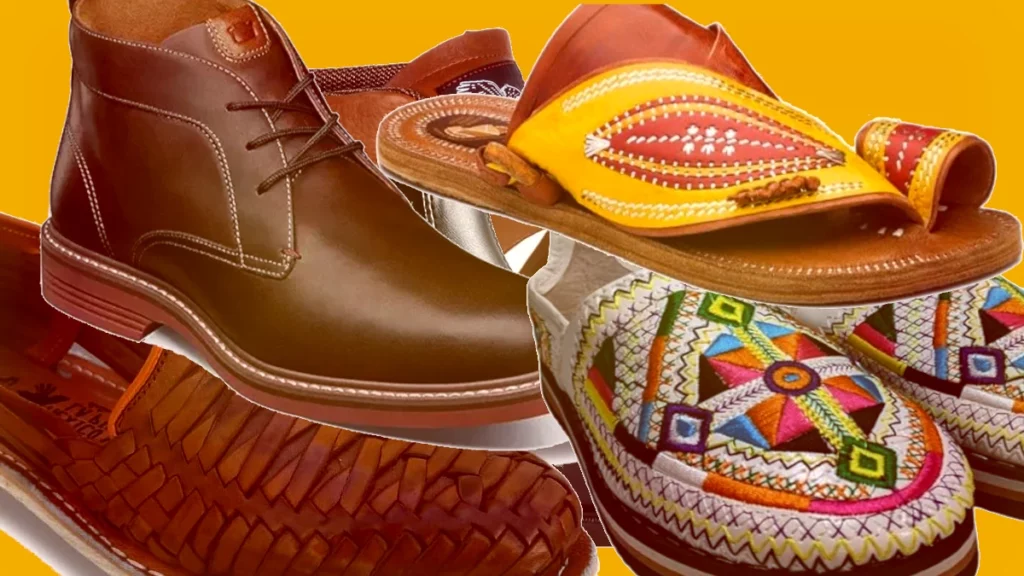
7 Traditional Desert Footwear Styles from Around the World
1. Wüstenstiefel (Chukka Boots)
Zuerst, we have the iconic Wüstenstiefel, auch bekannt als Chukka-Stiefel.
These stylish yet functional boots gained popularity during World War II when British soldiers needed something comfortable for the arid conditions of North Africa.
Based on the South African Feldschuh, these boots feature a soft suede upper and a flexible crepe sole, making them perfect for navigating sandy terrain.
Over the decades, desert boots have transcended their military origins to become a fashion staple embraced by various youth cultures, particularly in the UK and the US.
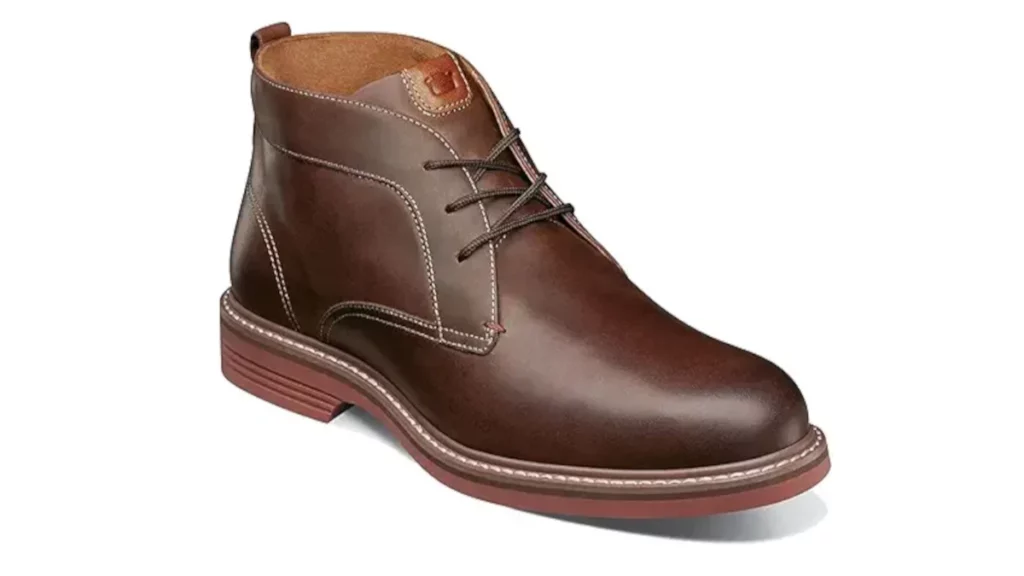
2. Veldskoen
Next on our list are Feldschuh, or “field shoes,” which hail from South Africa.
These rugged boots have been worn since the 17th century and are crafted from leather or suede.
Their simple design and comfortable fit make them ideal for farmers and laborers who work in hot climates.
Heute, veldskoen are popular among outdoor enthusiasts and fashion lovers alike, thanks to their durability and versatility.
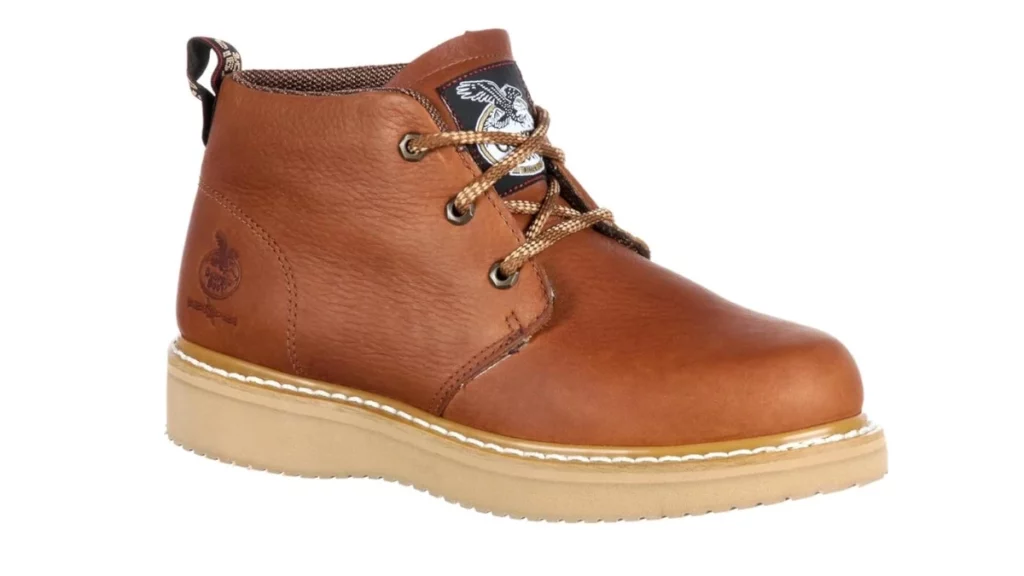
3. Jodhpur Boots
Originating from India, Jodhpur-Stiefel are ankle-high leather boots that were once worn by cavalry officers.
Named after the city of Jodhpur, these boots feature a closed lacing system and a sleek silhouette.
While they were initially designed for equestrian activities, Jodhpur boots have evolved into a fashionable choice for both men and women, suitable for formal occasions or casual outings.
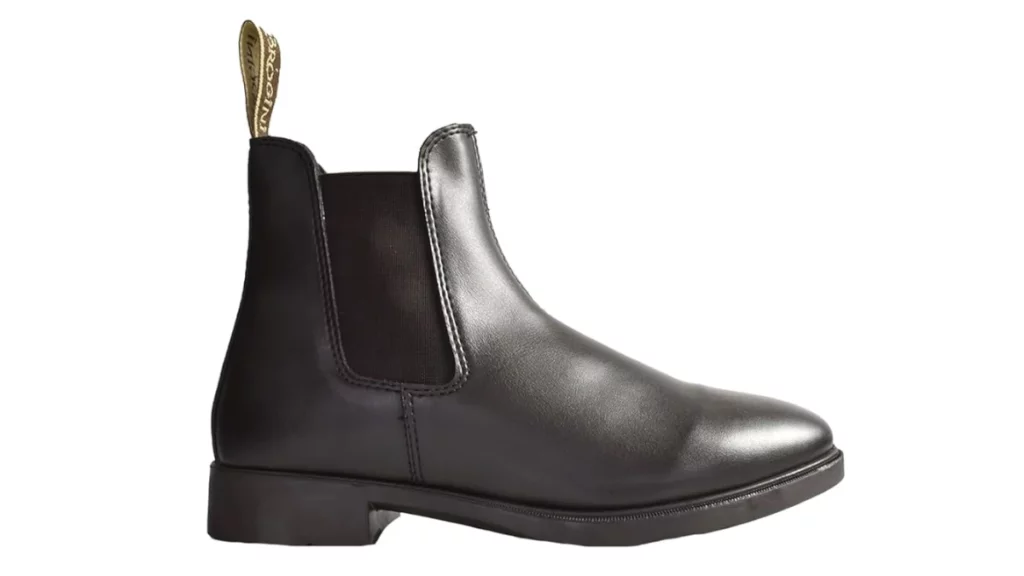
4. Avarcas Sandals
Avarcas sandals, also known as Menorcan sandals, originate from Menorca, Spanien.
Traditionally worn by farmers, these sandals are made from leather and feature a simple design with an open-toe style.
They are known for their comfort and durability, making them ideal for warm climates.
Avarcas come in various colors and designs, reflecting local craftsmanship while providing breathability for extended wear.

5. Bedouin Sandals
In the Middle East, Beduinensandalen have been a staple for nomadic tribes for centuries.
These shoes are also known as madas sharqi oder shibshib.
Typically made from leather, these flat sandals feature straps that secure the foot while allowing for ventilation—a must-have in scorching desert heat.
The practicality of Bedouin sandals makes them ideal for traversing both sand dunes and rocky landscapes.
6. Huarache Sandals
Huarache sandals are traditional Mexican footwear with roots that stretch back to pre-Columbian times.
Originally crafted by indigenous communities in Mexico, these sandals are made from natural materials like leather and plant fibers. The design features a woven leather upper and a flat sole, providing breathability and comfort in hot climates.
Each region has developed its own unique style, reflecting local resources and cultural influences.
Huaraches gained popularity beyond Mexico, becoming a symbol of cultural identity, especially among Chicano populations during the Chicano Movement.
Heute, huaraches remain a beloved symbol of Mexican craftsmanship, preserving their authenticity and cultural value while being embraced by modern fashion.

7. Berber Babouches
Zu guter Letzt, we have Berber babouches, traditional slippers worn by the Berber people of North Africa.
Made from soft leather or suede, these slip-on shoes often feature intricate embroidery or decorative elements that reflect local craftsmanship.
Babouches are perfect for indoor use but can also be worn outdoors in milder conditions, making them a versatile addition to any wardrobe.
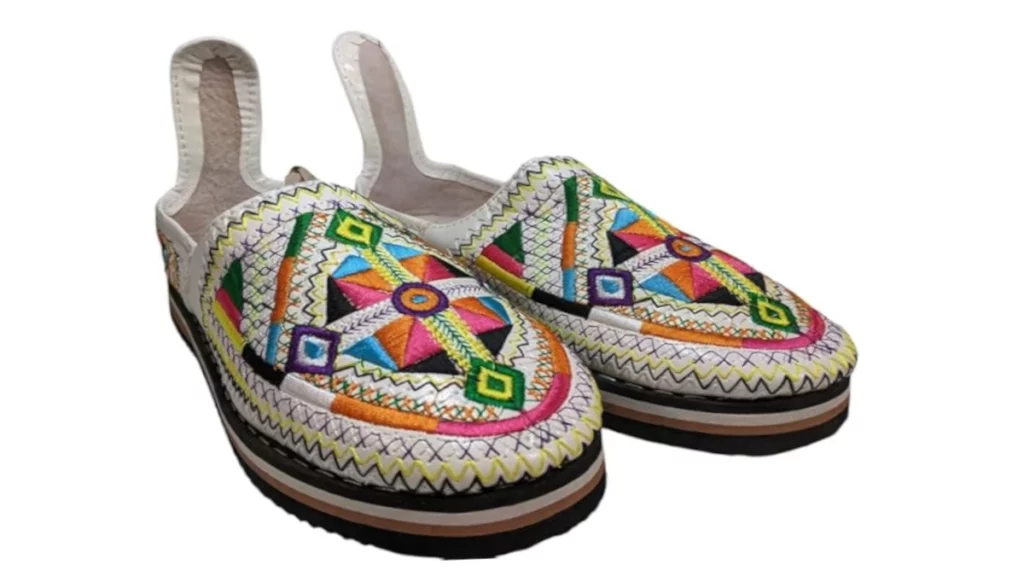
Lesen Sie auch: Was in der Wüste anziehen?
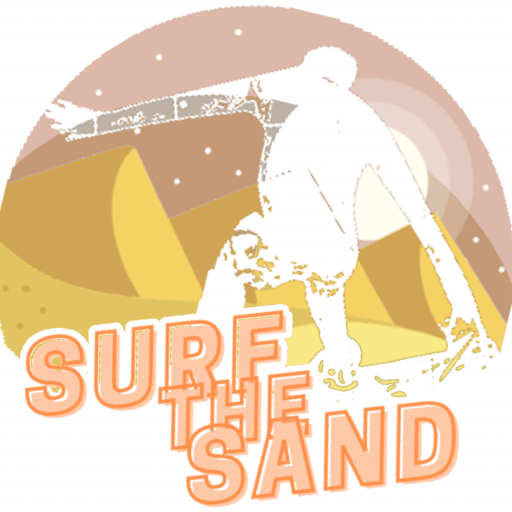
Ihre Informationsquelle Nr. 1 über die Welt der Sandsport- und Wüstenabenteuerreisen. Unsere Artikel sind das Ergebnis umfangreicher Recherchen, persönliche Erfahrung, und Wissensaustausch innerhalb der globalen Sandboarding-Community.

